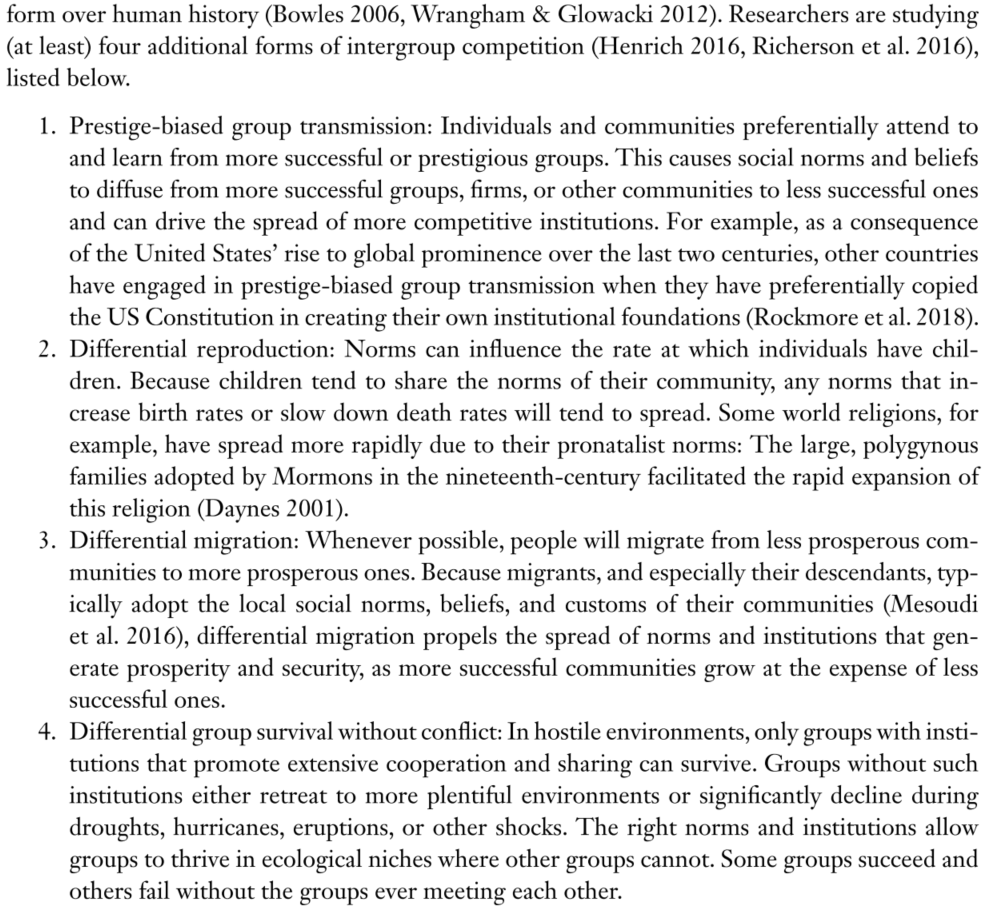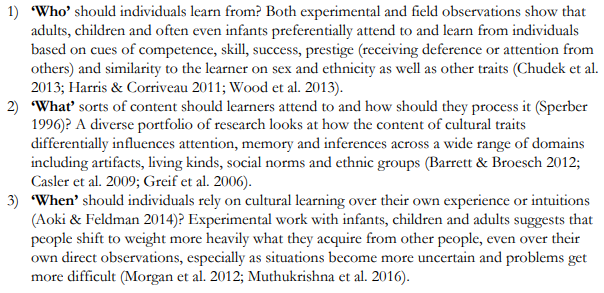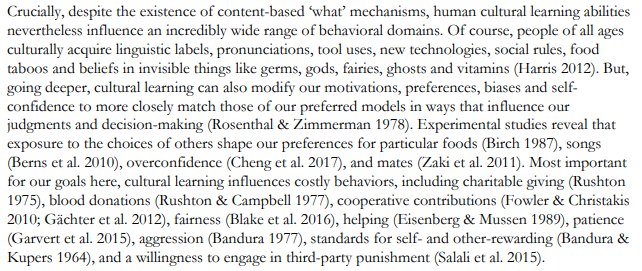Just finished reading this *fascinating* paper The Origins and Psychology of Human Cooperation by @JoHenrich and @mmuthukrishna about how the rapid evolution of cultural norms allowed co-operation at different scales. https://henrich.fas.harvard.edu/files/henrich/files/henrich_and_muthukrishna_the_origins_and_psychology_of_human_cooperation_final.pdf
The authors note that the scale and extent of co-operation in humans can't be explained by genetic factors only - there's absolutely no equivalent in other species. It's the very rapid evolution of cultural norms that accounts, more convincingly, for our exceptional cooperation.
They also find that different societies have very different norms and this can often be attributed to the scale of collaboration found within them, e.g. tribal/hunter community adults perceive very different cooperation norms than adults in Western communities.
Importantly for teachers & educators, they note that we are wired to learn cultural norms around co-operation (and rules for punishing violators) particularly between the ages of 6 to 11.
They note that, through history, most societal norms were based more strongly around local and family-based co-operation. However norms in Western, Educated, Industrialized, Rich and Democratic (WEIRD) countries are historically deeply unusual.
They note that the evolution, spreading, inter-mixing or survival of cultural norms can happen in multiple ways.
They also note that the mechanisms that sustain success-inducing cultural norms may also maintain what they call 'maladaptive' norms that emerge and that the overall success of a culture may still allow subcomponent, maladaptive norms to continue.
I guess we could also extend this to reflect that pointless but mainly harmless cultural norms may be strongly enforced through the same mechanism, e.g. small details around clothing customs, personal grooming, jewellery, etc.
How all of this is learned is also fascinating. All of us, and particularly children, are primed to learn more from those perceived more competent, skilful, successful and prestigious. This peer-learning frequently overrides personal intuition
Crucially, learned cultural norms modify and even supersede our own preferences, biases, motivations and self-confidence. As mentioned above, this seems to happen particularly between ages of 6-11.
I'm finding my mind drawn to thinking about how all of this interacts with issues around social class, level of education, racism, nationalism... as well of course about the implications for organisational norms and leadership.
Huge thanks to my amazing colleague @KLMorgan_2 who sent me this paper.
Worth also reading this thread by @mmuthukrishna, one of the authors https://twitter.com/mmuthukrishna/status/1351223993093791745?s=20

 Read on Twitter
Read on Twitter







